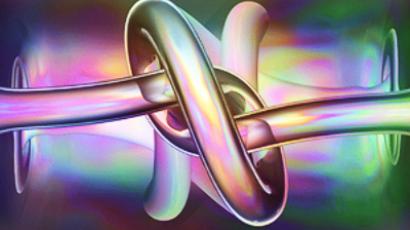Russia looks at Northern Sea transport route
Rich in natural resources, the Arctic is becoming an increasingly attractive region for business. One of the ways to master the resource base is to revive the Northern Sea Route for shipping.
Russia will send a large-capacity tanker in September from Europe to South-East Asia via the Northern Sea Route. According to the country's transport minister, the voyage will show the economic value of taking the shorter seaway rather than going through the Indian Ocean.
It is the shortest maritime passage between the Atlantic and the Pacific Ocean. Travelling along the top of Russia's arctic coast takes only two thirds of the time it takes to go through the Suez canal to the south.
It also has the advantage of not being frequented by the sorts of pirates that lurk off the coast of Somalia.
But going north is not an easy route to travel; thick sea ice makes it all but impassable for normal vessels for most of the year.
And although the predicted effects of climate change are reviving the interest of ship owners, the project will still need significant funding, says Aleksandr Davydenko, Head of Federal Agency of Sea and River Transport.
“In the next five years we'll need about 30 million dollars for navigation safety systems and more than one billion dollars for shipbuilding though it's not the final cost.”
Russia's Norilsk Nickel has constructed its own fleet to carry cargo the year around without needing icebreakers. The company's next step is to build an ice class tanker to transport gas condensate, which is planned for 2011, explains Aleksey Tyukavin, Head of the Murmansk branch of Norilsk Nickel
“The cost of this tanker will be around 100 million euro. We're going to export about 100 thousand tonnes of gas condensate from Dudinka to European market.”
Russia's northern neighbours are also interested in the project, among them Denmark, the Netherlands and Norway, says Olav Hauge, Project Corridor, Northern Maritime Corridor.
“Our focus has been to make an arena for networking between not only Norwegian but also UK and the continent up to the Russian north and the industry in the north including commercial ports, including logistics services.”
The amount of transit that could travel the NSR is estimated to be about 9 million tonnes annually. This could be a significant competitive advantage for Northern countries, which will be able to get their products to the large markets in Europe and Asia more quickly and cheaply.













